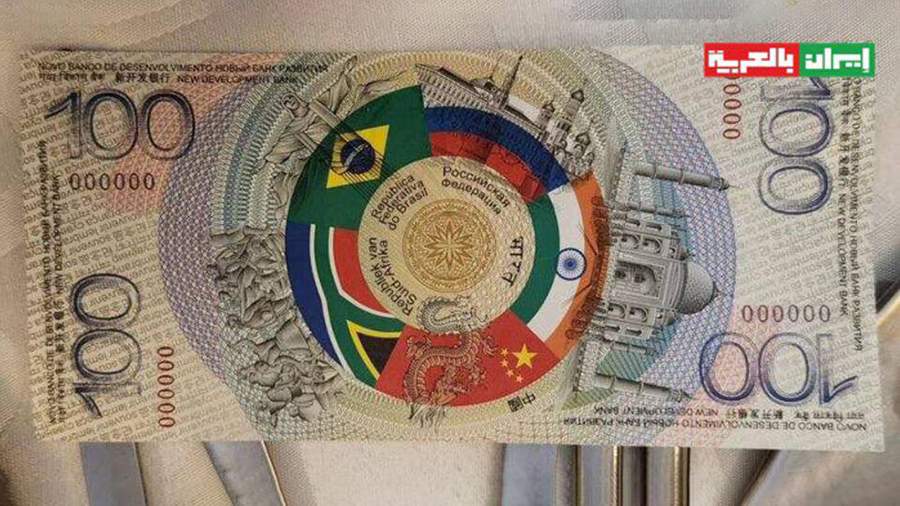
Saudi Arabia and the BRICS Bloc
By Salem AlKetbi
When a country of Saudi Arabia’s size and weight joins the BRICS bloc, the discussion naturally turns to the benefits of the bloc, not just the invited country. It is not an overstatement to say that the bloc will be the biggest beneficiary of this major geostrategic agreement in international relations.
Saudi Foreign Minister Prince Faisal bin Farhan said in a televised statement that Saudi Arabia’s presence in a bloc helps strengthen the bloc’s competitiveness. This is confirmed by analysis and figures alike. Saudi Arabia is an important regional and international player, a reliable energy supplier and a fundamental balancing power in global energy markets.
Saudi Arabia is also a heavyweight in investment and international trade and an important partner for major economies, including China, the US, Japan, India, and South Korea. All of this illustrates the remarks of Russian Foreign Minister Sergei Lavrov, who said that among the criteria considered when discussing the expansion of the BRICS group were the country’s weight, status and positions on the international stage.
China, one of the key members of BRICS, is the most important trading partner of Saudi Arabia. The Kingdom’s GDP exceeds one trillion dollars, and China tops the list of partner countries, accounting for 17% of Saudi Arabia’s foreign trade. Bilateral trade has increased by about 31%. India, another influential member of the bloc, follows with about 9% trade with Saudi Arabia. The top ten countries on Saudi Arabia’s trade list also include two Arab countries that recently joined BRICS, the UAE and Egypt.
In economic terms, this underscores the importance of Saudi Arabia’s membership for other members of the bloc. All parties are expected to mutually benefit from the opening of Saudi markets to their trade and vice versa. Overall, Saudi Arabia is the most important trading partner of BRICS members in the Middle East.
Therefore, this issue can be approached primarily from the perspective of development and economic diversification, rather than focusing only on the geostrategic conflict, as is sometimes emphasized in the analysis of BRICS membership.
This perspective does not negate the fact that membership gives Saudi Arabia an influential advantage in political and diplomatic maneuvering in its relations with the West. This is a reasonable and widely accepted approach that embodies Saudi Arabia’s new orientations. It is committed to the interests of its people, openness and common interests in all its international relations.
Saudi Arabia cooperates with the BRICS bloc primarily for economic and trade reasons, while being guided in its foreign policy by basic principles such as balance and moderation. Therefore, BRICS membership does not contradict Saudi Arabia’s active role in the G20. On the contrary, it complements it from Saudi Arabia’s perspective and is in line with its approach to international relations, focused on finding common ground, promoting understanding, and strengthening international security and stability.
Riyadh’s role in the G20 should be taken into account when analyzing its expected role within the BRICS bloc. Saudi Arabia, the only Arab country in the G20, successfully hosted the group’s 2020 summit during one of the most difficult times for the global economy. At that time, the COVID-19 pandemic was spreading across all countries, causing economic standstills. Saudi diplomacy excelled in creating common ground for the collective participation of G20 countries in combating the pandemic and mitigating its devastating economic and social impact.
Saudi Arabia’s membership in the BRICS bloc is an important step in strengthening the Kingdom’s global role. The world is evolving rapidly, and a country as large and influential as Saudi Arabia cannot remain isolated from the changing global landscape, especially true when it comes to safeguarding its vital interests. Existing strategic relationships and alliances with key countries in the East and West cannot substitute for membership in these influential blocs, especially in the areas of trade and investment.
Since its creation in 2006, the main objective of the BRICS bloc, accounting for about 26% of global GDP, has been to strengthen the global status and influence of its member states as emerging or developing economies. In addition, most of its member countries have fast-growing economies, such as China and India. The bloc also represents about 41% of the world’s population, making it a significant market for both production and consumption.
In general, recent events, such as hosting the international meeting to address the Ukraine crisis and inviting Riyadh to join the BRICS bloc, are indicators of Saudi Arabia’s growing global influence.
The credit for this change goes to the Saudi leadership and the Crown Prince, His Royal Highness Prince Mohammed bin Salman. In a relatively short period of time, he has led his country to new heights and strategically repositioned it in various fields, including the economy, politics, media, tourism, and even the oil sector. In doing so, Saudi Arabia has laid a solid and robust foundation to pursue the aspirations and ambitions of its youth, who harbor great dreams and aspirations for development.
The young prince has skillfully harnessed these immense energies for promising future projects and plans, all of which are aligned with the interests of a new Saudi Arabia.
Source: www.middle-east-online.com
